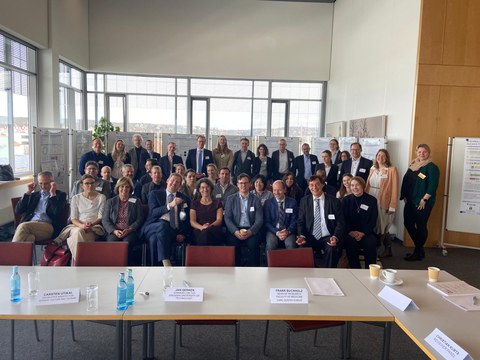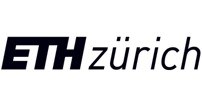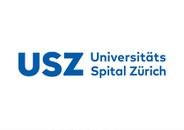Über uns
Kampf gegen eine doppelte Bedrohung – IRTG3019:MEDIS erforscht den Zusammenhang zwischen Infektions- und Stoffwechselkrankheiten
Infektions- und Stoffwechselkrankheiten zählen nach wie vor zu den weltweit häufigsten Todesursachen – zwei auf den ersten Blick unterschiedliche gesundheitliche Herausforderungen, die in Wirklichkeit eng miteinander verknüpft sind. Zunehmende wissenschaftliche Erkenntnisse belegen eine wechselseitige Beziehung zwischen beiden: Infektionen können den Stoffwechsel- und Hormonhaushalt erheblich stören, während Stoffwechselerkrankungen wie Diabetes und Adipositas den Verlauf und die Schwere von Infektionskrankheiten deutlich verschlechtern können. Die COVID-19-Pandemie hat dieses gefährliche Zusammenspiel besonders deutlich gemacht und gezeigt, wie das Aufeinandertreffen einer übertragbaren und einer nicht übertragbaren Pandemie die weltweite Krankheits- und Sterblichkeitsrate dramatisch erhöhen kann.
Um dieser dringenden Herausforderung zu begegnen, wurde das IRTG3019: MEDIS – „Metabolic and Endocrine Drivers of Infection Susceptibility“ – ins Leben gerufen. Aufbauend auf einer langjährigen, erfolgreichen Zusammenarbeit in den Bereichen Endokrinologie, Stoffwechsel, Immunologie und Infektionsforschung bündeln drei Partnerinstitutionen – die Technische Universität Dresden, die Universität Zürich und die ETH Zürich – ihre Kräfte und bilden gemeinsam eine einzigartige Allianz zur Leitung dieses Programms.
Das IRTG vereint eine herausragende Gruppe von Expertinnen und Experten – darunter Diabetolog:innen, Endokrinolog:innen, Virolog:innen, Immunolog:innen, Patholog:innen, Epidemiolog:innen und Zellbiolog:innen –, die eine exzellente wissenschaftliche Ausbildung und individuelle Betreuung in einem hochgradig interdisziplinären und kooperativen Umfeld bieten werden.
Das Forschungsprogramm des IRTG 3019 basiert auf zwei zentralen Säulen. Die erste, „Pathogene im Visier des endokrinen Systems“, untersucht, wie virale und bakterielle Infektionen die hormonelle und metabolische Regulation sowohl auf systemischer als auch auf organspezifischer Ebene beeinflussen. Die zweite Säule, „Endokrine und metabolische Regulation von Infektionen“, erforscht, wie Störungen in hormonellen und stoffwechselbezogenen Signalwegen die Anfälligkeit für Infektionen erhöhen können – und ob gezielte Interventionen helfen können, die Immunfunktion wiederherzustellen.
Das Programm hat zum Ziel, eine neue Generation von Wissenschaftler:innen und forschenden Ärzt:innen (sowohl MD- als auch PhD-Studierende) mit den notwendigen Fähigkeiten und dem interdisziplinären Wissen auszustatten, um die komplexe Schnittstelle zwischen Infektions- und Stoffwechselkrankheiten effektiv zu erforschen und zu adressieren.
Das Programm profitiert zudem von der transCampus-Partnerschaft zwischen der TU Dresden und dem King’s College London – einem international anerkannten Modell für binationale akademische Zusammenarbeit. Frühere IRTG-Programme, wie das IRTG2251: ICMSD, das über diese Plattform koordiniert wurde, erhielten großes Lob von den Gutachtergremien der DFG und setzen damit einen Maßstab für Exzellenz in der internationalen Graduiertenausbildung.
Das neue IRTG-MEDIS-Konsortium wird eine zentrale Rolle dabei spielen, neue Ressourcen zu bündeln, die kritische Masse zu erhöhen und die individuellen Stärken der beteiligten akademischen Institutionen zusammenzuführen. So entsteht ein starkes, komplementäres akademisches und klinisches Netzwerk – mit internationaler Ausstrahlung und nachhaltiger Wirkung.
Für weitere Informationen wenden Sie sich bitte an das Koordinationsbüro des IRTG3019: MEDIS:
 © Matthias Popp
© Matthias Popp
IRTG3019 : MEDIS Wissenschaftliche Koordination
NameDr. rer. medic. Sindy Giebe
Zertifikat der DFN-PKI für verschlüsselte E-Mails.
 © Shancy Bock
© Shancy Bock
IRTG3019:MEDIS - Koordinationsbüro
NameShancy Bock





